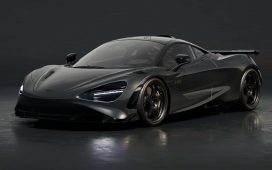Hydrogen will play a “critical role” in the future of road vehicles, according to one expert, with up to 15 million hydrogen vehicles potentially seen on roads by the end of the decade.
Fuel cell electric vehicles could be a matter of years away from a massive spike in interest and become a “more viable option”.
Spark EV Technology, a leading zero emission vehicle range prediction specialist, has signed a global agreement to research and develop electric fuel cell technologies.
There are expectations that the hydrogen fuel market will grow rapidly, potentially reaching between 10 to 15 million vehicles by 2030.
WATCH NOW: Siobhan Baillie asks about hydrogen vehicles at PMQs
According to Hydrogen Council, this total number will include 500,000 hydrogen-powered trucks.
The new partnership between Spark EV and AVL aims to alleviate range anxiety by predicting the capability of the vehicle to undertake the journey.
It is hoped this could slash the total cost of ownership, reduce the consumption of hydrogen fuel and get rid of any concerns around the size of batteries.
Justin Ott, CEO of Spark EV Technology, said the collaboration could put an end to industry concerns around the fuel source.
He added: “Hydrogen will play a critical role in the energy mix for commercial vehicles, but there is currently a lack of refuelling infrastructure and awareness as to whether an FCEV can manage typical duty cycles by fleets.
“Our plan is to offer a solution that can optimise the capability of FCEVs and eliminate range and refuelling anxieties by building trust in highly accurate, live range availability, and the optimisation of hydrogen fuel consumption, helping more fleets transition faster and offering manufacturers a viable FCEV option.
“This is a landmark moment for the future of FCEVs. and we are delighted to be partnering with AVL to tackle these concerns.
“We look forward to developing and delivering options for the commercial vehicle market over the next years.”
While there are only a few hydrogen cars on the market at present, they have an impressive range of between 300 and 400 miles.
They can also be refuelled in minutes, although, compared to electric vehicles, there are only a handful of hydrogen refuelling stations across the UK.
There are plans to expand the progress of hydrogen infrastructure around the country and across Europe with plans already in place to help businesses make the switch to hydrogen in the near future.
EU nations agreed to install refuelling stations every 200km (124 miles) along core routes across the continent, with further plans to install stations in most major cities with a population above 100,000.
Dominik Brunner, lead engineer at AVL, commented on the partnership, saying: “We are proud to introduce an innovative approach to enhance fuel efficiency by optimizing fuel cell operation along specific routes.
“By selecting the right power source at the right part of the journey, our solution reduces energy consumption and emissions, marking a significant step toward greener and more cost-effective transportation.
LATEST DEVELOPMENTS:

Boris Johnson with a Toyota Mirai hydrogen vehicle
PA
“We are looking forward to seeing what comes from the partnership with Spark EV Technology and exploring how we can help more manufacturers make the transition to zero emission.”









